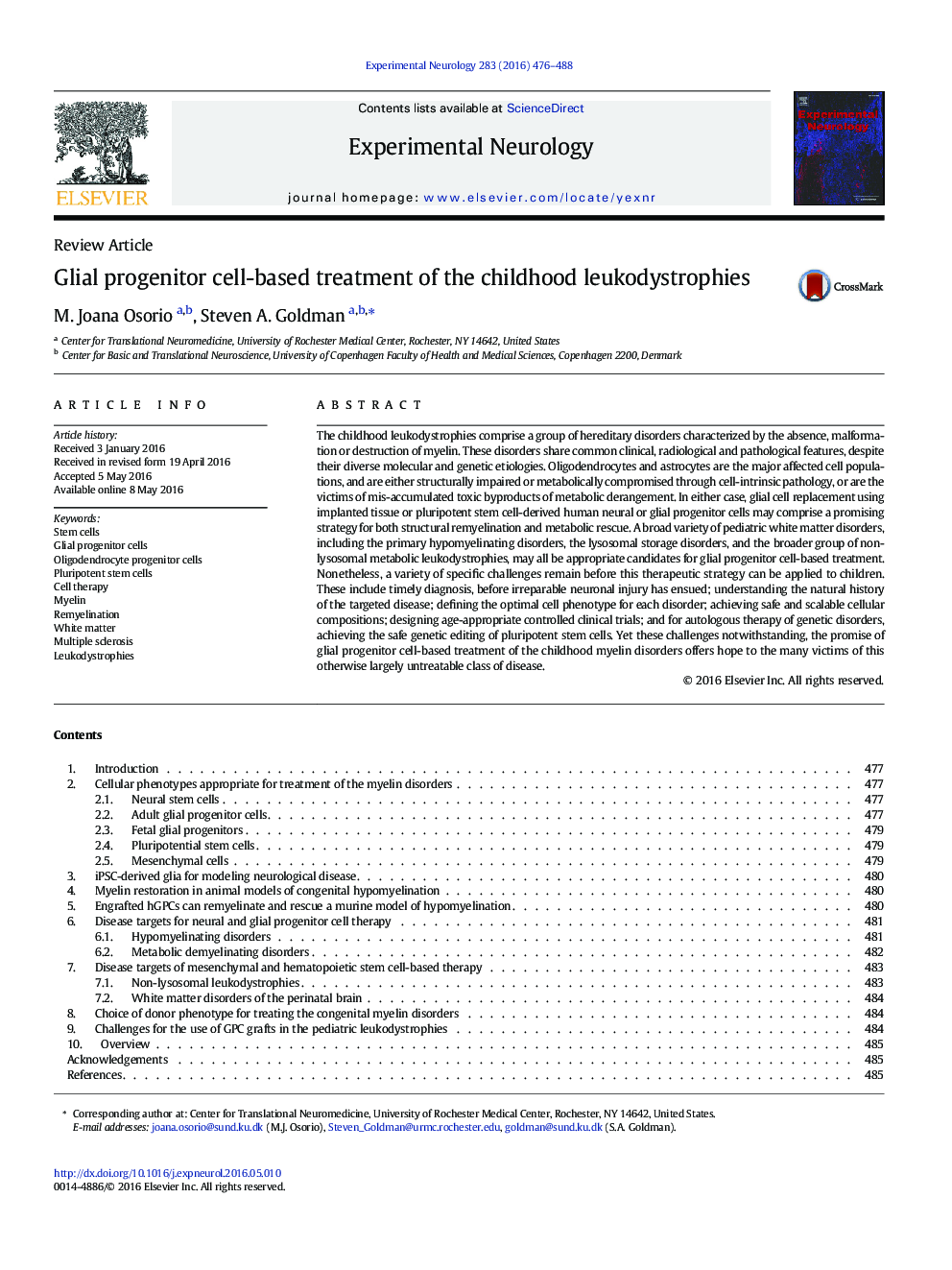| کد مقاله | کد نشریه | سال انتشار | مقاله انگلیسی | نسخه تمام متن |
|---|---|---|---|---|
| 6017002 | 1186474 | 2016 | 13 صفحه PDF | دانلود رایگان |
The childhood leukodystrophies comprise a group of hereditary disorders characterized by the absence, malformation or destruction of myelin. These disorders share common clinical, radiological and pathological features, despite their diverse molecular and genetic etiologies. Oligodendrocytes and astrocytes are the major affected cell populations, and are either structurally impaired or metabolically compromised through cell-intrinsic pathology, or are the victims of mis-accumulated toxic byproducts of metabolic derangement. In either case, glial cell replacement using implanted tissue or pluripotent stem cell-derived human neural or glial progenitor cells may comprise a promising strategy for both structural remyelination and metabolic rescue. A broad variety of pediatric white matter disorders, including the primary hypomyelinating disorders, the lysosomal storage disorders, and the broader group of non-lysosomal metabolic leukodystrophies, may all be appropriate candidates for glial progenitor cell-based treatment. Nonetheless, a variety of specific challenges remain before this therapeutic strategy can be applied to children. These include timely diagnosis, before irreparable neuronal injury has ensued; understanding the natural history of the targeted disease; defining the optimal cell phenotype for each disorder; achieving safe and scalable cellular compositions; designing age-appropriate controlled clinical trials; and for autologous therapy of genetic disorders, achieving the safe genetic editing of pluripotent stem cells. Yet these challenges notwithstanding, the promise of glial progenitor cell-based treatment of the childhood myelin disorders offers hope to the many victims of this otherwise largely untreatable class of disease.
Journal: Experimental Neurology - Volume 283, Part B, September 2016, Pages 476-488
